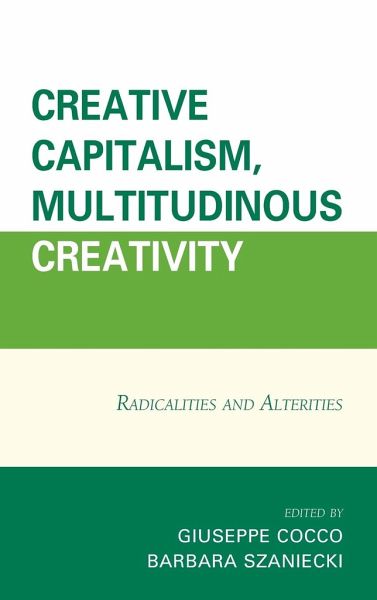
Creative Capitalism, Multitudinous Creativity
Radicalities and Alterities
Herausgeber: Cocco, Giuseppe; Szaniecki, Barbara
Versandkostenfrei!
Versandfertig in 1-2 Wochen
127,99 €
inkl. MwSt.
Weitere Ausgaben:

PAYBACK Punkte
64 °P sammeln!
The book aims to counter the normative functioning of creativity in contemporary capitalism with a plethora of alternatives to radical creative practices. In the first part, titled "Creative Capitalism", five authors analyze the forms of contemporary capitalism: on the one hand, there are new ways of working which include flexibility, mobility, and especially precarity; on the other, there are new forms of recovery and accumulation. In the second part, titled "Multitudinous Creativities: Radicalities and Alterities", the book reflects on more autonomous creative experiments in the world. The t...
The book aims to counter the normative functioning of creativity in contemporary capitalism with a plethora of alternatives to radical creative practices. In the first part, titled "Creative Capitalism", five authors analyze the forms of contemporary capitalism: on the one hand, there are new ways of working which include flexibility, mobility, and especially precarity; on the other, there are new forms of recovery and accumulation. In the second part, titled "Multitudinous Creativities: Radicalities and Alterities", the book reflects on more autonomous creative experiments in the world. The third part, titled "Creativity, New Technologies, and Networks", analyses the issues related to the work of creative capitalism and the possible resistance within the digital and collaborative platforms.














